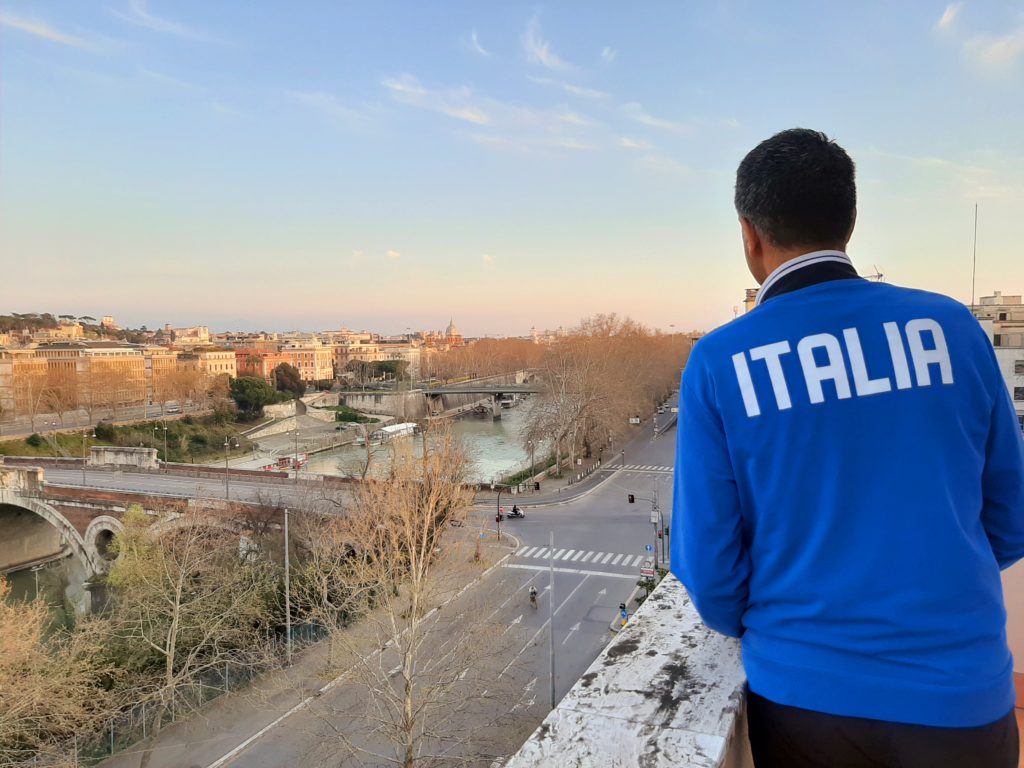This story will be featured in a special edition of St. Thomas magazine on COVID-19 coming out in late June.
Due to COVID-19, education majors weren’t able to complete their Minnesota teacher licensure exam. Thanks to their dean's advocacy, they now can teach under a conditional license.For students majoring in teacher education, the COVID-19 pandemic has challenged them to embrace new opportunities for working with their cooperating teachers on distance learning lessons for their K-12 students. It’s also been an uncertain time for the student teachers when it comes to their future. School of Education Dean Kathlene Holmes Campbell has been working tirelessly since March advocating for her students on everything from the number of “face-to-face" weeks of student teaching required to the way teacher performance assessments are conducted.
Testifying before the Education Policy Committee
Because of Campbell and her staff’s hard work, wavier requests for 111 student teachers and 118 teacher candidates in field experience were accepted.
In April, Campbell began testifying at a remote hearing for the Minnesota House of Representatives Education Policy Committee asking them to allow student teachers, who are currently not able to take the required Minnesota Teacher Licensure Examination because testing sites are closed, a one-year conditional license without taking the exam first. Because they graduated from a teacher preparation program and they showed that they were competent in all the areas – it would let them teach for a year. Then within that calendar year they would need to take and pass the Minnesota Teacher Licensure Examination. A decision on the bill that included this issue passed in mid-May.
“It’s important that we are advocating for our students,” Campbell said. “I worry that at times the people who are the most vulnerable don't always have a voice. That's why it’s so important to make sure that I amplified their voices and their needs. People need to understand what the implications are.”
If the licensing exemption hadn’t passed, Campbell said, the fallout for the new crop of teachers – including 111 of from the School of Education – would have been harmful to the education system that already faces teacher shortages in many areas.
“Teachers are often overlooked, but we really are there for kids,” Campbell said. “To say that you're not going to help the next generation of teachers coming in would have been a travesty.”
Even though student teachers were forced to change the way they work with their cooperating teachers in the spring, they continued to gain valuable skills including flexibility.
“The ability to pivot and change everything that you've thought about in an instant is a skill they will use for the rest of their careers,” Campbell said. “I've watched how our student teachers went from being nervous and panicked to ‘I get it and I understand how to utilize the skills I already have.’ All of a sudden, our student teachers realized that they knew where to find different resources online and were able to share the information with their host teachers.”
Campbell has heard testimonies from many of the cooperating teachers paired with students. They’re grateful for the help they’ve received during the transition to distance learning and have often relied on student teachers to help them navigate the various online tools needed to help children continue their education.
“I'm proud of them,” Campbell said about the students. “I was worried just like I think anyone else was. I wanted to make sure that our student teachers felt safe and they were okay. But what I've noticed is our student teachers have shifted to thinking about the kids.”
Campbell and her colleagues at the School of Education have done everything in their power to support their students in a variety of ways.
“I've sent updates after every one of the board meetings letting them know which waivers were approved and what it means,” Campbell said. “I'm really blessed to have an amazing staff and faculty who then are meeting with the students and explaining how we'll implement it. Students have said ‘thank you for advocating for us’ because they realize that's not happening everywhere else.”
The resiliency students have shown during this unprecedented time will add to their future in the classroom.
“Looking back, I don't think we ever could have prepared students for this moment, but I really do feel like they're going to be better teachers for it,” Campbell said.







